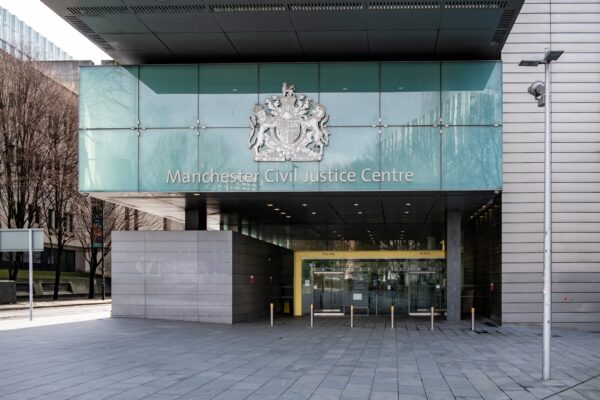Anna Morris KC highlights a lack of pro-active Covid measures and slow uptake of virus modelling for care homes
16 October 2023
Today at the UK Covid-19 Inquiry, Anna Morris KC questioned Professor Mark Woolhouse on the issue of testing and modelling at the UK Covid-19 Inquiry, and Professor Anthony Costello on the UK’s preparedness and approach to tackling Covid-19 spread.
Anna began questioning Professor Woolhouse by reading an excerpt from Expert Report for the UK Covid-19 Public Inquiry – Module 2:Oxford COVID-19 Government Response Tracker Evidence for UK Covid-19 Inquiry a report by Professor Thomas Hale, Associate Professor in Global Public Policy, Blavatnik School of Government at the University of Oxford: ‘…at [no] point was the UK able to achieve a level of testing, contact tracing and isolation and support at which it could be confident that these light intervention measures would have a chance of preventing new waves from arising.’
When asked if he agreed with the statement Professor Woolhouse responded: ‘I very, very strongly agree with that.’ Going on to say that testing would be vital in controlling infections but that the early target for completed tests being set at 100,000 a day ‘wasn’t even close’ and was ‘so inadequate’. Professor Woolhouse added that he had wanted mass testing of ‘millions per day’ but was told that his advice was ‘not serious’ and that millions of tests a day ‘wasn’t a realistic option’.
‘There was absolutely no realisation of what needed to be done in that first year,’ he added.
Anna pointed to another passage in Professor Hale‘s report which criticised the lack of a pro-active approach to implementing restrictive measures, leading to a trifecta of:
- high numbers of excess deaths;
- long periods of closure and containment policies;
- a significant economic toll.
The passage reads: ‘As a new wave arose, restrictive measures were often introduced only when it became apparent that the health system as a whole would be at risk, not earlier, when there might still have been potential to prevent a wave from rising in the first place.’
Professor Woolhouse agreed, saying: ‘Earlier interventions can be less drastic… If you don’t let [the rate of infection] rise up, you don’t have to drive it down. So, the interventions you need are less severe.’
Care homes and hospitals
Moving on to the topic of how the virus was spread in care homes and hospitals, Anna asked if there had been a reason that the settings weren’t expressly represented in modelling.
Professor Woolhouse suggested it was due to the models being used having been adapted from influenza models, which are focused on infections at schools rather than care homes and hospitals.
Anna followed up by asking if it was possible to model for care homes and hospitals and if there had been any barriers in the data available at the time to have created such models.
To which Professor Woolhouse replied that it would have been ‘challenging’ as the ‘input data’ required, such as the transmissions rates in care homes and hospitals, ‘wasn’t immediately easy to measure,’ but added: ‘My understanding is that the structures weren’t even there to attempt it’.
Preparedness and approach
Later in the day’s sitting Anna questioned Professor Anthony Costello about the contents of a press conference from 26 March 2020 in which it was suggested that the UK’s approach was entirely consistent with the science and epidemiology.
Professor Costello disagreed with that statement.
Anna asked Professor Costello if he agreed that the plan of containment of Covid-19 and delay of its spread was in line with science?
Professor Costello said: ‘No’.
Anna asked if there was any evidence that contact tracing in vulnerable locations, such as care homes, was happening in a meaningful way in March 2020?
Professor Costello said: ‘No’.
The professor also suggested that advice from the World Health Organisation had not been followed closely by the UK Government, namely a strategic preparedness and response plan with six key priorities:
- Controlling transmissions;
- Implementing a programme of find, test, trace, isolate;
- Minimising outbreaks in hospitals and care homes;
- Implementing preventative measures in workplaces and schools;
- Managing risks of virus importation; and
- Engaging, educating, and empowering communities.
The professor added that it was his belief that ‘upwards of 150k deaths’ could have been prevented in the UK if the UK had followed the policies put in place by nations such as Japan and South Korea.
Anna Morris KC and Pete Weatherby KC lead the team representing the Covid Bereaved Families for Justice UK group in Module 2 of the Inquiry, which includes GCN’s Christian Weaver, Kate Stone, Ciara Bartlam, Mira Hammad and Lily Lewis. Also on the team are Garden Court Chambers tenants Allison Munroe KC (Modules 1 and 3) and Thalia Maragh, Jesse Nicholls from Matrix Chambers, Oliver Lewis from Doughty Street Chambers and Tom Jones from Deka Chambers. The team is instructed by Elkan Abrahamson, Nicola Brook, and Emma Beckett from Broudie Jackson Canter.
Watch the hearings via the UK Covid-19 Inquiry YouTube channel, including a live stream.





